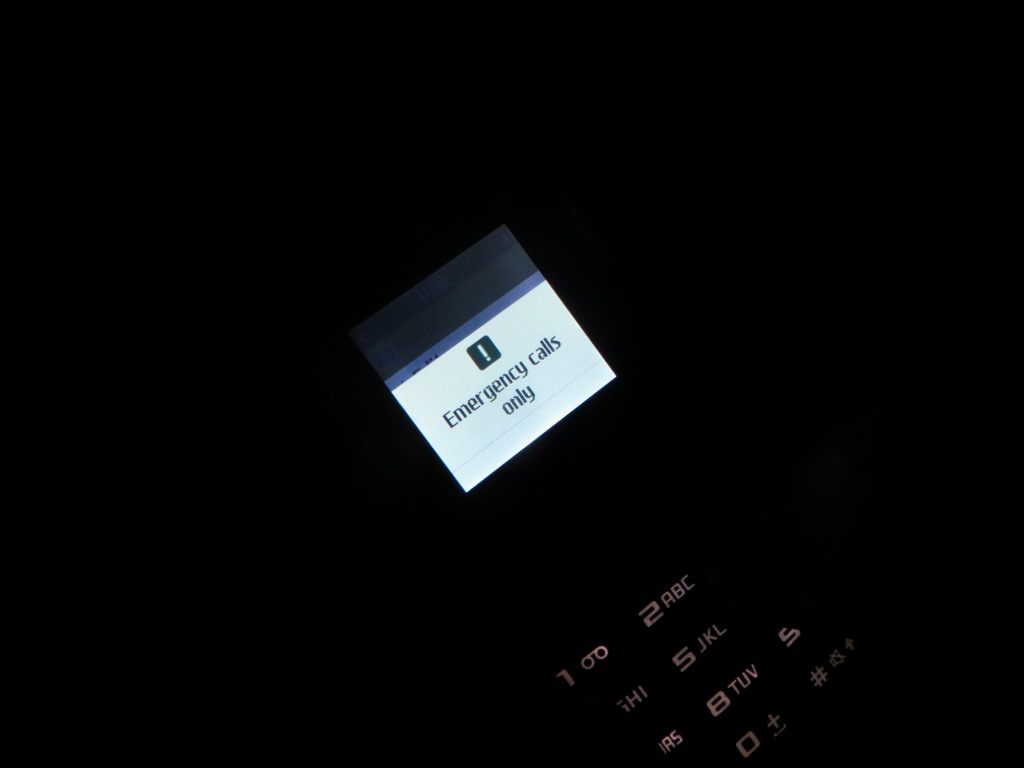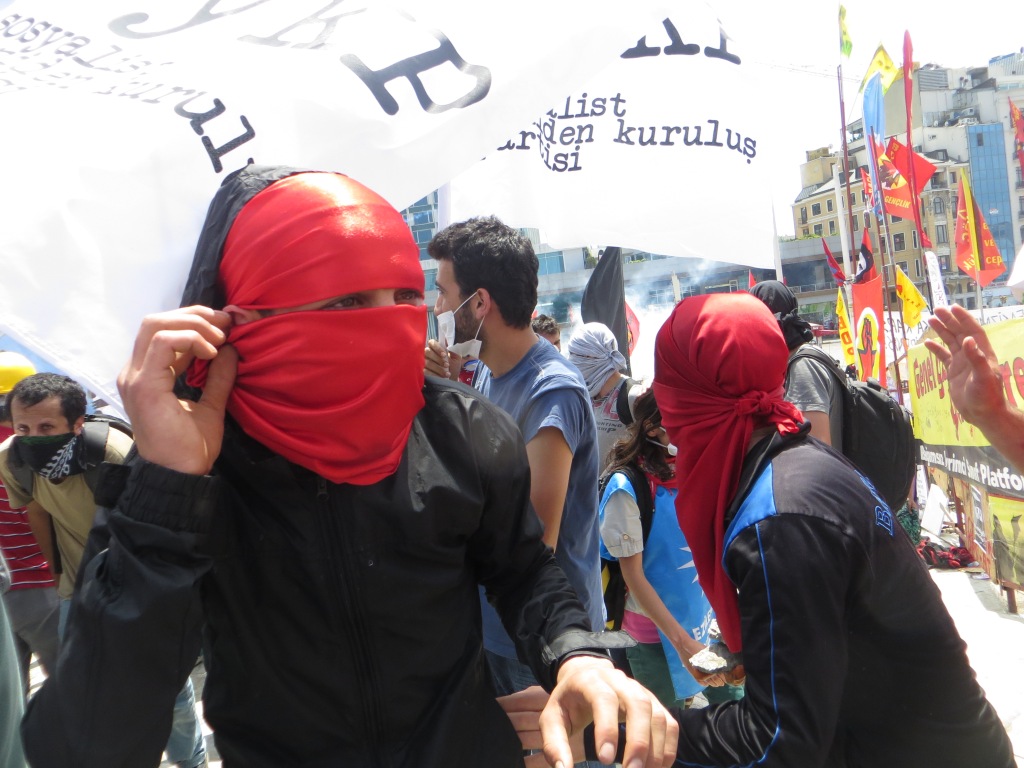Istanbul hit a milestone last night. At around 9 P.M., when two weeks earlier hundreds had paraded down my street banging pots and pans, only a single, solitary person protested against the regime of Prime Minister Recep Tayyip Erdogan.
It seems as though the protests that rocked Istanbul’s Gezi Park and public spaces around Turkey for the past 20 days are over. Attempts to revive them have been thwarted by the police occupation of Gezi and Taksim in the days following their brutal clearing on 15 July.
Though silent civil disobedience continues around the city, the bulk of Istanbul’s population is tired enough to go home, and those who remain have lost their common enemy.
Now seems as good a time as ever to take stock of what, if anything, they actually managed to accomplish.
The protests began as an environmental sit-in to prevent the construction of an Ottoman-style barracks museum/shopping centre in one of Istanbul’s last remaining green spaces. The government attempt to repress the protests in a typically excessive fashion spurred thousands to join.
By the end of the first week, the numbers had grown to their peak as Taksim, Gezi, Besiktas and the bridge to Asia were packed with hundreds of thousands (possibly millions) of disenfranchised citizens, whose lists of grievances had expanded to include police brutality, media self-censorship, and the perceived religious authoritarianism of Erdogan’s Justice and Development (AK) party.
So what has been accomplished? To begin with, Erdogan’s government has agreed to stall construction projects in Gezi Park, in compliance with a court order. They’ve also agreed to put the issue to a referendum, should their planned appeal succeed.
Though this may seem like the aim of the protests have been accomplished (it certainly does to Erdogan’s supporters), it is at best a partial victory.
Even though construction is halted, Gezi Park remains occupied by police and closed to the public. It is as good as a construction site for anyone but the police officers that brutally cleared it.
The adjacent Ataturk Cultural Centre (AKM), which many protesters did not want to see demolished, is outside of the scope of the court order, and will be destroyed to make way for a mosque and museum as planned, in opposition to the will of many Istanbullus.
Furthermore, the government has no plans to back down on their appeal in Turkey’s increasingly politicized courts, and protesters were already deeply skeptical of the idea of a referendum, which, they argue, could easily be geared to deliver a win for Erdogan.
Similarly environmentally destructive and politically contentious projects, like Istanbul’s second airport, third bridge (named for an ethnically cleansing sultan), and new canal project, are all scheduled to go ahead without local consultation, the personal pet projects of Erdogan and his party.
But making these protests about Gezi, or even environmentalism, is perhaps a little deceptive. It can’t be forgotten that the court order preventing construction was issued on May 31, well before the protests expanded and international media got wind of them. In the end, many were protesting not about Gezi, but about the brutality of the police response.
On this front, nothing has been accomplished. Police are in the process of ordering 100,000 new canisters of tear gas, having used 130,000 on protests. There is no initiative for the banning of tear gas or the firing of Istanbul Governor Huseyin Avni Mutlu, who was instrumental in the escalation of violence, or the investigation of police responsible for brutality. These were all protest demands, all of them ignored.
Numerous breaches of human rights, including arbitrary arrest, attacks on media and medical staff, detention without access to lawyers, and the deaths of four protesters, will go uninvestigated. Police continue to brutally suppress protests outside Istanbul with the same equipment used in Gezi, often in the same excessive quantity.
Concerning media censorship, the protests successfully claimed one media executive, Cem Ayin of NTV, who was fired shortly after apologizing to his reporters for ignoring the protests in their early days.
But Andalou Agency, Sabah Daily, Today’s Zaman, and countless other outlets continue to unabashedly support the government even during its most repressive activities. Several continue to publish outright lies or refuse coverage to alternative voices.
Most shockingly, the government has spent the days following the clearance of Gezi arresting journalists and performing raids on alternative media outlets that supported the protests. The government is also drafting new laws that will increase their power of censorship, targeting social media.
Even worse, Erdogan questioned the validity of press card, issued by his own office, in determining who can and who can’t be arbitrarily arrested for being at the site of protests. Over the last twenty days, scores of journalists were injured and detained and there is no sense that this will change. Turkey remains the world’s largest prison for journalists.
It is true that Erdogan is now a bit of an international pariah, especially in Europe, which now looks set to deny Turkey EU membership. But this can hardly be counted as a victory, given that it wasn’t protesters who did this (who would probably benefit economically from EU membership), but Erdogan himself.
It’s Erdogan’s own EU minister who is threatening to cut all diplomatic ties, and it’s in Germany, whose large Turkish expat population would probably love easier immigration between the two nations, that the government is making an end to accession talks part of their political platform.
Though Erdogan’s reputation has been damaged abroad, it’s only galvanized his base, which loves to see him challenging international institutions and was only lukewarm on EU accession to begin with. And for a city like Istanbul, which thrives on foreign investment and tourism, the image of Erdogan as another Middle Eastern tinpot dictator is worse than a thousand Gezi projects.
So in the end, what was accomplished?
Perhaps it’s easier to ask what has been changed. Gezi will stay a park, hopefully. Turkey will not be an EU member, at least for another decade. And if there is any memory for these protests, Erdogan’s planned power-grab for the presidency will at least be a challenge in 2014.
In parliament, however, little has changed. The AKP still has legions of unquestioning supporters, now evidently increasingly prone to violence. His deputy PM, one of the few voices of conciliation during the protests, is rumoured to have resigned after a personal spat with Erdogan, evidence of his continuing stranglehold over the party.
As for the opposition, they have the same common enemy, the AKP, that they always did, and the same countless ineffectual parties to choose from. Efforts by protesters to turn the movement into one that can be expressed at the ballot box seem as hopeful and deluded as those that came from the Occupy movement.
The anger expressed in Gezi is not the sort that falls neatly into political parties. It is a broader anger at a system that seems to be exploited by whoever is in power, the collective sigh of the masses for politics representative of people, not parties.
It is the same anger seen in Brazil, in London, in New York. And it’s the same anger that never seems to result in any change. At least, not before the media rush on to the next one.
In other news:
- Occasional spats between the Turkish army and PKK continue along the border.
- The Kurds might not have a country, but thanks to Gibraltar, they may have a football team.
- Growing protests in Egypt challenge the authority of President Mohammed Morsi and Muslim Brotherhood. The hardcore Islamist Salafis are issuing some scary statements and planning counter-protests from 21 to 30 June, when the opposition is planning to hold a big rally/march on the president’s office. Revolution 2.0? If so, probably with more bloodshed. Expect clashes.
- The Prime Minister of the largely-useless-to-Palestinians Palestinian Authority resigned after two weeks on the job, citing a dispute over powers. Now President Mahmoud Abbas is saying he’ll prevent him resigning, and it’s all a mess. Meanwhile, the UN says Israelis used Palestinian children as human shields.



























